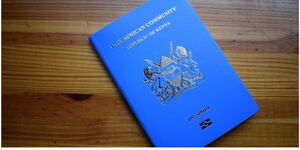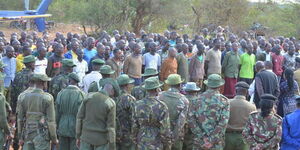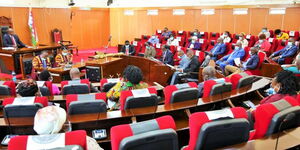The High Court has ruled that Facebook's parent company, Meta, can be sued in Kenya over its alleged role in promoting content that contributed to ethnic violence in neighbouring Ethiopia.
According to Reuters, the court, in its ruling delivered on Thursday, decided that Meta can face legal charges over alleged hate speech on Facebook during the 2020-2022 civil war in Tigray, Northern Ethiopia.
In the case filed by Katiba Institute and two Ethiopian researchers, the plaintiffs alleged that Facebook's recommendation systems amplified violent posts in Ethiopia, including several that preceded the murder of the father of one of the researchers.
Additionally, the lawsuit claimed that Meta failed to exercise reasonable care in training its algorithms to identify dangerous posts and in hiring staff to police content in the languages covered by its regional moderation hub in Nairobi.
According to the lawsuit, the father of one of the researchers claimed that his father faced ethnic slurs and calls for his death in Facebook posts in October 2021, which revealed his location.
The lawsuit alleges that the researcher reported the posts to Facebook immediately, but the company failed to remove them promptly or, in some cases, at all. The researcher’s father was later murdered the following month.
However, during proceedings, Meta argued that local courts do not have the authority to hear cases against it if it is not registered as a company in the jurisdiction. The global firm suffered a significant setback when the High Court rejected this argument, paving the way for the company to face charges.
"The court here has refused to shy away from determining an important global matter, recognising that homegrown issues must be addressed directly in our courts," stated Nora Mbagathi, Katiba’s executive director, in reaction to the ruling.
In their demands, the plaintiffs are asking the court to order Meta to take emergency steps to demote violent content, increase moderation staff in Nairobi and create restitution funds of about $2 billion (Ksh258.5 billion) for global victims of violence incited on Facebook.
This was despite Meta’s assertion that they had taken the necessary measures, including investing heavily in content moderation and removing hateful content from the platform.
"We invest heavily in teams and technology to help us find and remove this content. We employ staff with local knowledge and expertise and continue to develop our capabilities to catch violating content in the most widely spoken languages in Ethiopia," stated Meta spokesperson Erin McPike during the height of the case.
Thousands of people died, and millions were displaced in the Ethiopian conflict that erupted in 2020 between the federal government and rebellious forces from the northern Tigray region. In November 2022, the two sides agreed to a permanent cessation of hostilities.
The case is the third to be brought against Meta in Kenya, where the company also faces lawsuits from content moderators employed by a local contractor who say they faced poor working conditions and were fired for trying to organise a union.
The company, which had invested billions and hired thousands of content moderators globally over the years to police sensitive content, in January scrapped its U.S. fact-checking program.












